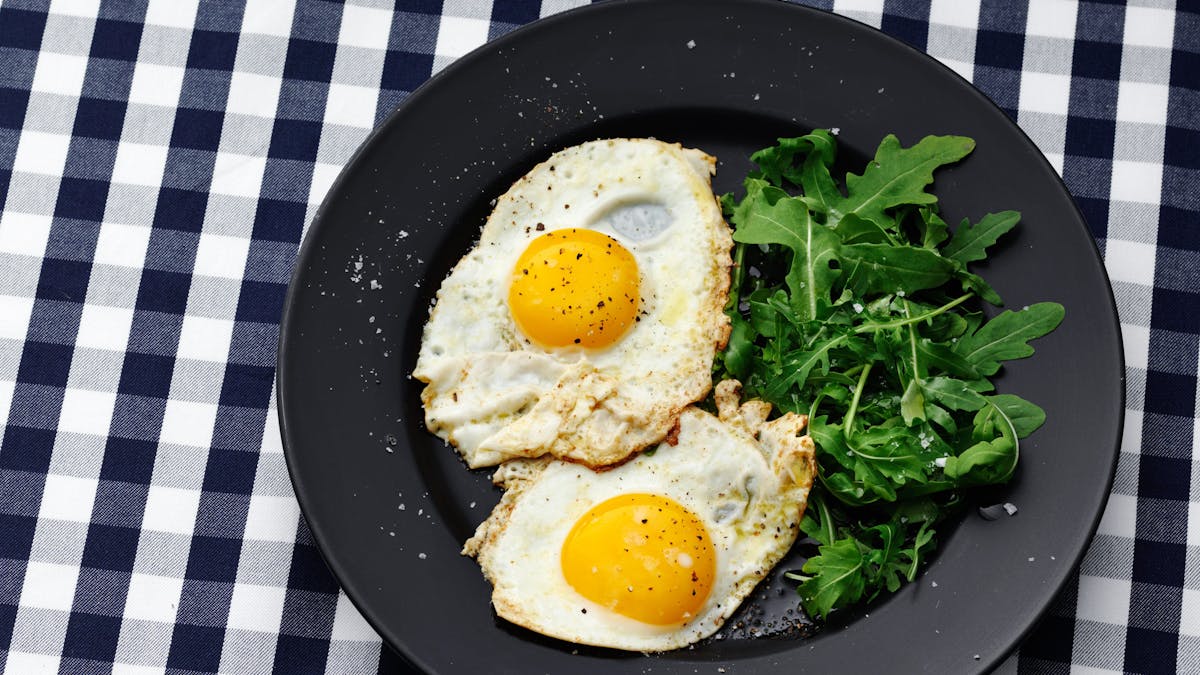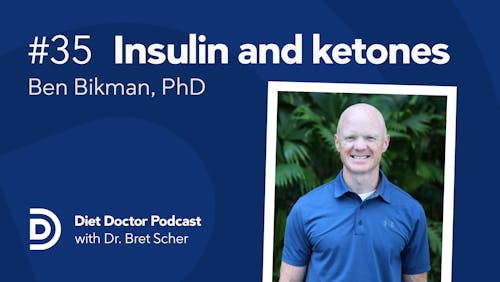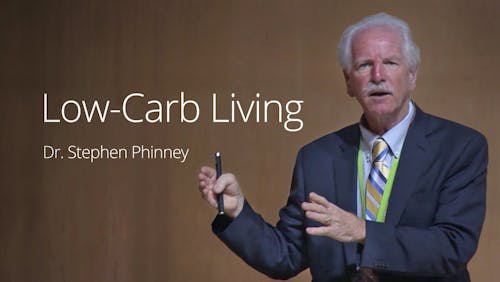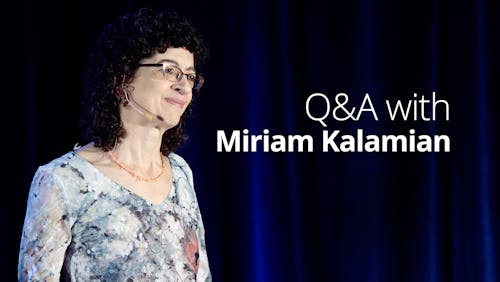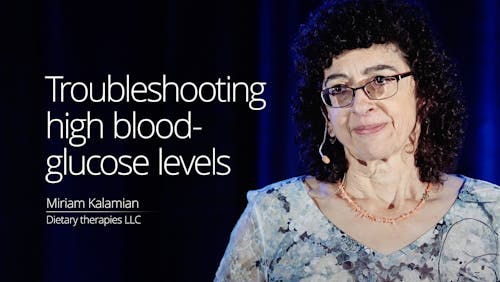How much protein can you eat in ketosis?
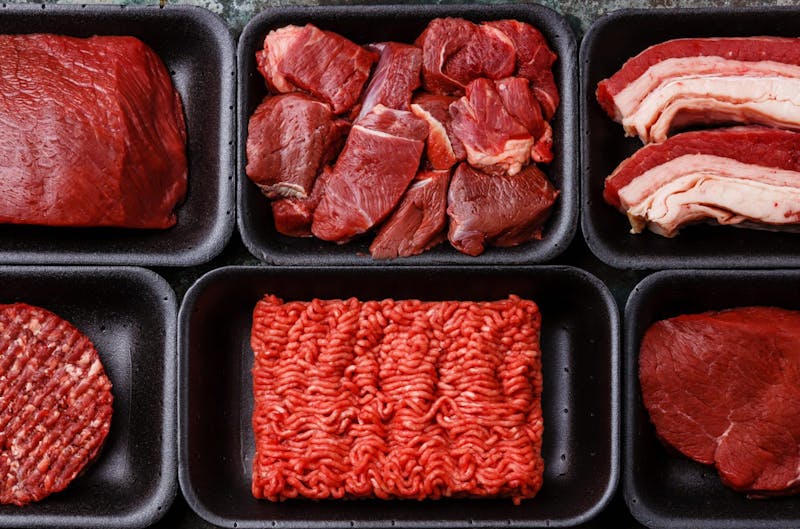
In the last post, Why You’re Not in Ketosis, I revealed why, and how I fixed it (by reducing my carb and protein intake to 20 and 60 grams per day respectively).
But, I had a problem. Though it felt awesome to be back in ketosis, it sucked to eat so little protein – 60 grams a day isn’t much for a meat lover like me.
Could I eat more protein AND remain in ketosis?
I was going to find out.
The protein experiment
I designed the following experiment:
First, I would increase my protein intake from 60 grams a day to the level where I would no longer be in ketosis.
Then, I would reduce my protein intake until I was back in ketosis, using what I ate on the last day to define my daily-protein limit.
Finally, I’d eat to this daily-protein limit every day for a week to test its accuracy, adjusting my protein intake if necessary.
To increase the trustworthiness of the experiment, I added five rules:
1. Keep eating 10-20 grams of carbs a day
2. Keep eating during a four-hour window (5-9pm)
3. Adjust my protein intake gradually
4. Make no other major changes to my life
5. Measure my blood-ketone levels every morning before eating
“Nice plan”, I thought.
But there was one thing I hadn’t taken into account…
Preparation
To start off the experiment, I measured my blood-ketone levels: 2.0 mmol/L.
Not exactly shocking news – I had been eating 45-60 grams of protein and 10-20 grams of carbs a day for weeks, being in ketosis almost every morning.
But all that could end soon – it was protein time.
Day 1: Taco-cheese shells
On the first day of the experiment, I ate similarly to how I’d eaten lately – butter, eggs, ground beef, and some vegetables, but no berries or nuts. For the extra protein, I ate the totally delicious taco-cheese shells. Awesome.
The totals for the day were 85 grams of protein (40 grams more than the day before), 10 grams of carbs (10 grams less than the day before), and lots of fat.
Would I be out of ketosis by tomorrow morning?
Day 2: Low-carb pizza
I woke up at 06:10 am. Feeling a little nervous, I walked quickly to the living room, sat down by the dinner table, and prepared my blood-ketone meter. “Not again”, I thought as the needle closed in on my finger.
After ten seconds, I saw this:
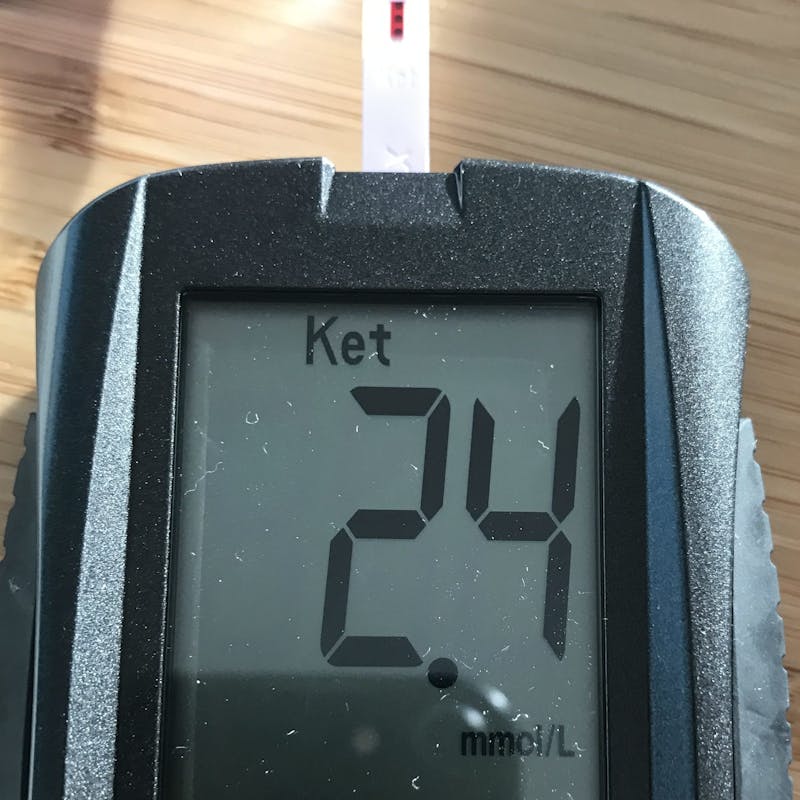
Oh yeah, ketosis and 0.4 mmol/L more ketones than yesterday! Good news, but it was early days.
What caused the ketone increase? Perhaps it was eating 10 grams carbs less than the day before, perhaps it was random variance (the blood-ketone meter isn’t 100% accurate), or perhaps it was something else. I couldn’t be sure.
I upped my protein and carb intake a notch by eating a few more vegetables and raspberries, and by replacing those crispy taco-cheese shells with a few slices of the legendary low-carb pizza. So delicious!
The totals for the day were 100 grams of protein (+15 grams), 20 grams of carbs (+10 grams), and lots of fat.
Could my ketone levels survive this carb and protein onslaught?
Day 3: Liver, eggs, cheese, and more pizza!
I woke up early, walked quickly to the living room, sat down by the dinner table, and prepared my blood-ketone meter. “Ouch, not again”, I thought as the needle was about to attack my finger. I touched the ketone strip and waited.
After ten seconds, I saw this:
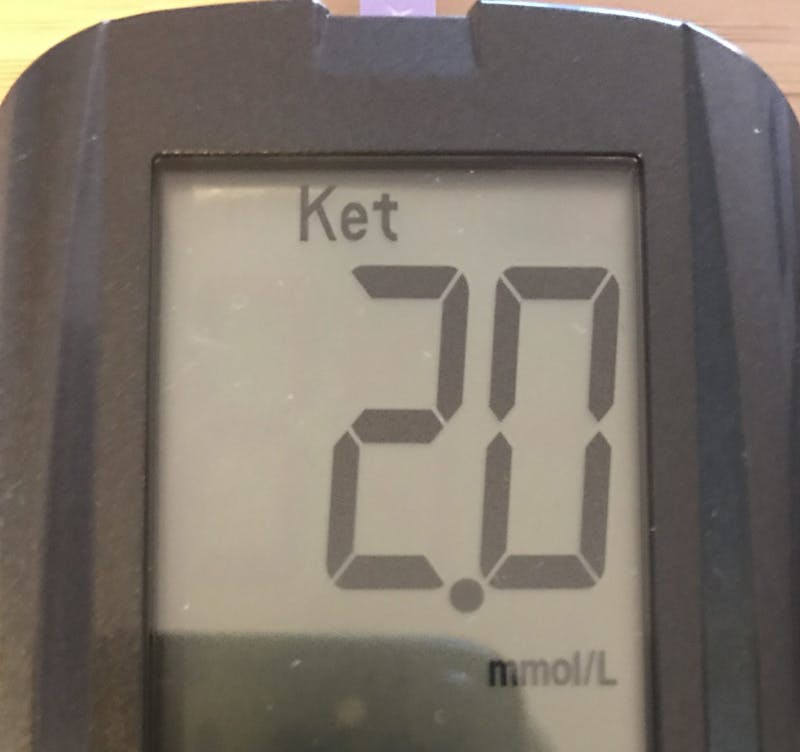



Oh yeah, ketosis! 0.4 mmol/L less ketones than yesterday, but the same ketone levels as on day 1 having eaten 40 grams more protein. And I had doubled my carb intake from the day before.
What caused the ketone reduction? Perhaps it was eating more protein and/or carbs, perhaps it was random variance, or perhaps it was something else. I didn’t know.
I decided to go for it. How much protein could I possibly eat in a day while keeping carbs to maximum 20 grams?
I stuffed myself with liver, eggs, cheese, and more low-carb pizza. Eating so much felt great, but after a while I was totally stuffed. I went to bed feeling nauseous – too much food.
The totals for the day were 135 grams of protein (+35 grams), 20 grams of carbs (+0 grams), and lots of fat.
Day 4: Bye, bye ketosis, right?
I woke up super thirsty. After chucking down a big glass of water, I walked to the living room, sat down by the dinner table, and prepared my blood-ketone meter. “Here we go again…”, I thought as the needle charged down on my finger. I touched the ketone strip, and waited.
Surely it was time to kiss ketosis bye, bye:
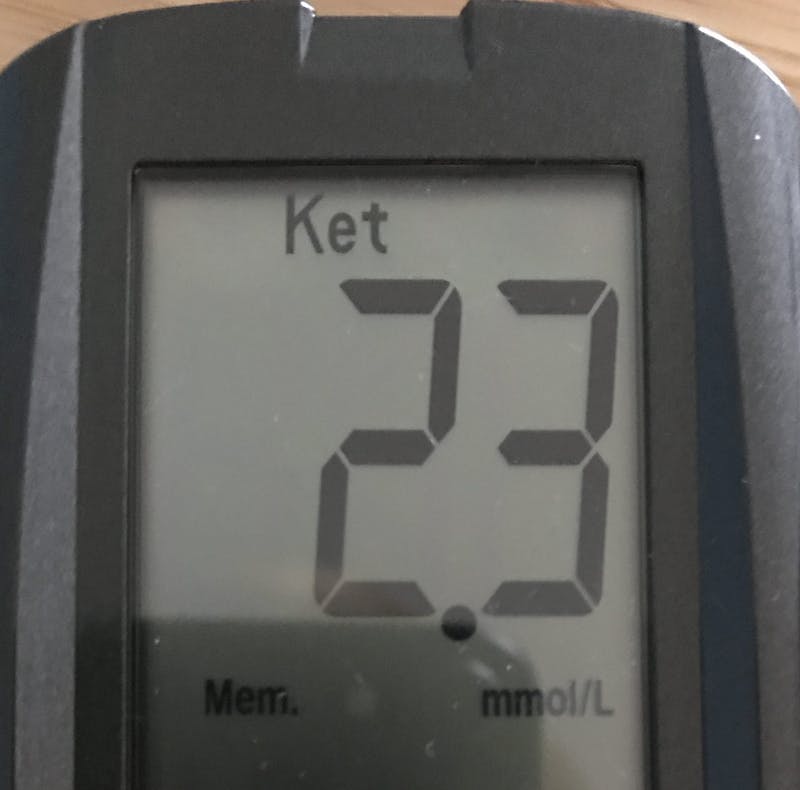



2.3 mmol/L, really?
After eating as much protein as I could stomach, my ketones went up by 0.3 mmol/L from the day before. Not what I expected.
Day 4 to day 10: Eating as much protein as I want
Could my daily-protein limit be higher than the amount of protein I wanted to eat? Or perhaps my body was in need of extra protein after a weeks of eating too little?
To find out I decided to change the experiment.
Instead of forcing myself to eat more and more protein, I would eat all the protein I wanted to for a week, and see whether that would kick me out of ketosis. If so, I would reduce my protein intake until I was back in.
So, every day for a week, I ate in the 80-130 grams of protein, and 10-20 grams of carbs, range – plus lots of fat of course. What happened to my blood-ketone levels?
They stayed around 2,0 mmol/L every morning – still in ketosis.
These days: Few surprises
I’m still eating as much protein as I want, but I’m super strict with my carb intake – I keep it to maximum 20 grams a day almost every day.
To make sure I don’t drop out of ketosis without knowing, I measure my blood-ketone levels once a week. So far there’s been only one surprise – 0.5 mmol/L ketones the morning after I ate at a Lebanese restaurant near the Diet Doctor main office – probably some added sugar.
What I’ve learned from these experiments
A while back I found out I’d been lying to myself for years – I wasn’t really in ketosis. To understand why, I did an experiment and learned that I’d been eating too many carbs and possibly too much protein.
I immediately reduced my carb and protein intake to maximum 20 and 60 grams per day respectively, and boom – straight back into ketosis.
But I didn’t love eating just 60 grams of protein. To find out how much more I could eat AND remain in ketosis, I did the above protein experiment.
From this latest experiment, I’ve learned that I can likely eat 80-130 grams of protein a day for weeks, and possibly for way longer, without dropping out of ketosis.
So, for me, the key to ketosis is to restrict the intake of carbs to less than 20 grams of carbs a day.
Now, let’s talk about you.
How much protein can you eat in ketosis?
First note that far from everyone has to stay in ketosis. Lots of people do fine on low carb without it. But staying in ketosis may improve mental and physical performance, it often results in more weight loss and it can have certain other potential health benefits, like controlling epilepsy or migraine.
Here’s what Diet Doctor has to say about reaching ketosis:
First limit carbohydrate intake to less than 20 grams of net carbs. Next, make sure to get adequate protein. If possible stay between 1.2-2.0 grams of protein per day, per kg of body weight (about 0.7 grams per pound). So about 85-140 grams of protein per day if you weigh 70 kilos (154 pounds).
The most common mistake that stops people from reaching ketosis is not too much protein. It is too many carbs.
As this post indicates, I can eat significantly more protein and remain in ketosis. Can you?
That depends.
If you, like me, are a 36-year old insulin-sensitive male, who weigh 152 pounds, exercise for 10-15 minutes five times a week, and have no history of obesity or diabetes, then you can likely eat a great deal more protein.
However, if you’re overweight and/or have high blood-sugar levels, then you may want to stay in the lower end of the moderate range.
If you too want to eat more protein AND be in ketosis, here are two things you can do:
A. Exercise more.
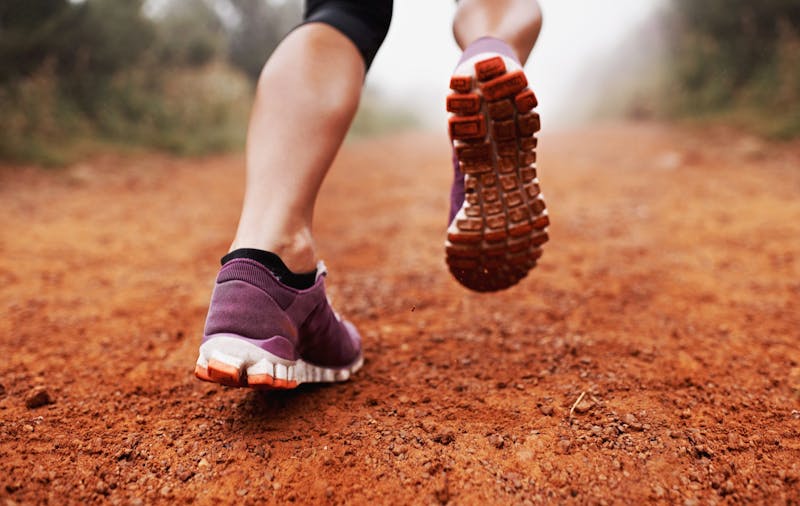


The more you exercise, the more protein your body needs – walking, running, and resistance training are all good options.
When you exercise more, you can increase your protein intake. To make sure you don’t go overboard with protein, measure your blood-ketone levels frequently and adjust your protein intake accordingly.
Remember to keep your carb intake to maximum 20 grams a day.
B. Find your daily-protein limit for ketosis
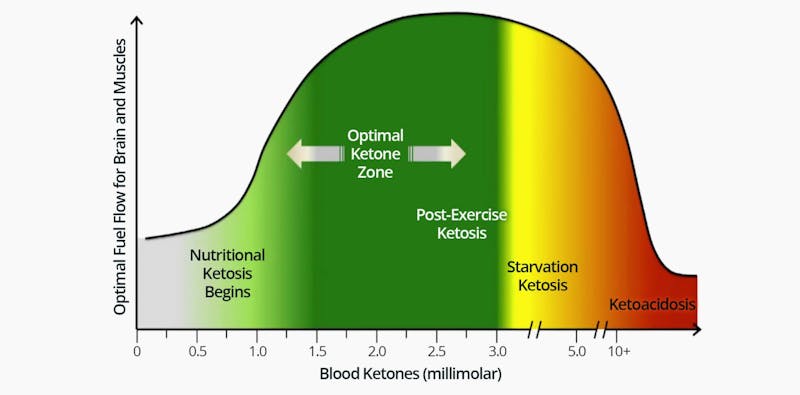


Perhaps your daily-protein limit for staying in ketosis is different from what Diet Doctor generally recommends?
To find out, do this:
1. Buy a blood-ketone meter with test strips (Diet Doctor does not make any money from you buying this).
2. Eat less than 20 grams of carbs a day for a week. Then, test your ketones first thing in the morning before eating anything.
3a. If your blood-ketone levels are at 0.5 mmol/L or above, increase your protein intake gradually over the next week. Measure your blood-ketone levels every morning and see what happens.
How many grams of protein can you eat per day before your ketone levels drop below 0.5 mmol/L? Eat a little less protein than that.
Keep measuring your ketones for a few days, and if you’re always in ketosis, measure just once a week.
If you drop out of ketosis, make sure you’re eating maximum 20 grams of carbs a day. If you already are, but your ketone levels are too low, reduce your protein intake a little.
3b. If your blood-ketone levels are below 0.5 mmol/L, first ask yourself if ketone levels make that much of a difference for you, they may or may not. Next, confirm your carb intake is below 20 grams per day. Then finally, consider reducing your protein intake gradually over the next week. Measure your blood-ketone levels every morning and see what happens.
How much do you have to reduce your protein intake before your ketone levels rise above 0.5 mmol/L? Eat a little less protein than that *.
Keep measuring your ketones for a few days, and if you’re always in ketosis, measure just once a week.
If you drop out of ketosis, make sure you’re eating maximum 20 grams of carbs a day. If you already are, but your ketone levels are not in the optimal range, reduce your protein intake a little.
* We don’t recommend that you eat less than 0.4 grams of protein per pound of desired weight for long periods of time. You need protein.
Three follow-up questions
1. What would happen if I ate more than 140 grams of protein a day?
I don’t know.
I won’t test this anytime soon though as I don’t want to eat more protein than I’m doing now.
2. What would happen if I ate 80-135 grams of protein a day for months or years?
I don’t know.
I think doing so would keep me in ketosis – that’s what the findings from this experiment indicate – but I won’t know the answer to this question for a while yet. I’ll keep measuring my ketones weekly and will give you an update later this year.
3. What would happen if I exercised less?
I don’t know.
I assume doing so could reduce my blood-ketone levels a little as my body would need less protein, but at what point that would happen I’m not sure.
Next
The above is the second of a 3-part blog series. Here’s the next one: What to eat in ketosis
More
A Ketogenic Diet for Beginners
Ready to lose the weight for good?
Our new 10-week program helps you lose weight in a healthy and sustainable way.
Sign up now!

